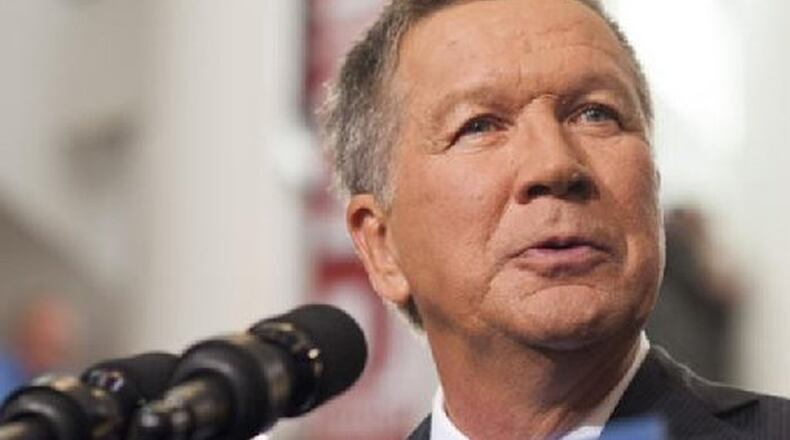If a settlement is reached, plaintiffs will need to figure out who gets how much of the settlement. Local governments argue they should receive disbursements. State attorneys general say states should be in charge of doling out the money.
Related: DeWine to drugmakers: It's time to reach a settlement
Kasich and Gee’s new non-profit, Citizens for Effective Opioid Treatment, wants to put hospitals in line for settlement cash. Now president of West Virginia University, Gee heads a medical center that has seen first-hand the costs of caring for people with addictions and babies born to mothers who use opioids.
Hospitals, however, are part of the opioid supply chain, through their emergency rooms and employed providers, though both new regulations and hospital-led initiatives have led to sharp decreases in opioid prescribing in recent years.
Also, Medicaid expansion has already made millions of additional dollars available to pay hospitals to cover the cost of treatment.
Loren Anthes, public policy fellow with Cleveland-based Center for Community Solutions, a health and human services think tank, said the announcement by Kasich and Gee highlights the need for a public dialogue of where any settlement dollars should go.
“Hospitals are an important part of a system of recovery and Kasich’s support for expanded Medicaid provided them with important resources during the epidemic,” Anthes said. “The opioid crisis has affected nearly every corner of Ohio, putting a strain on law enforcement, the judicial system, community behavioral health, our emergency responders and, critically, families facing the challenges of addiction and the loss of loved ones. Any allocation of settlement funds should take all these needs into account.”
Citizens for Effective Opioid Treatment, a 501(c)4 organization that is not required to disclose its donors. Gee said Thursday that donors would be disclosed. Kasich said he’s not sure about what disclosures would be made but added “there’d be no question that hospitals would be involved in this because they want to be at the table.”
In his two terms as Ohio governor, Kasich, a Republican, took steps to curb over-prescribing of powerful prescription painkillers, close pill mills and revoke medical licenses of rogue doctors, widely deploy naloxone to reverse overdose effects, and expand Medicaid under Obamacare, which allowed for more drug treatment for thousands of Ohioans.
As governor, Kasich also cut funding to local governments, which have shouldered opioid crisis expenses such as higher jail, court and emergency medical response costs.
The fight over the potential windfall is drawing comparisons to the massive settlement deal 46 states reached in 1998 to settle lawsuits against tobacco companies over the cost of caring for smokers.
Kasich said he wants to make sure the opioid settlement “money doesn’t get frittered away” and spent on unrelated expenses as happened with much of the tobacco settlement money.
In the first 25 years, states collected $246 billion through the settlement but Tobacco Free Kids reports that states spent less than 3 percent of it on prevention programs to keep children from using tobacco.
Related: Ohio’s tobacco prevention efforts get mostly F’s
Kasich and Gee are long-time allies. After Congress but before becoming governor, Kasich was paid $50,000 a year to be a presidential fellow at Ohio State University, including under Gee's tenure as OSU president. In his 2012 State of the State address, Kasich gave multiple shout outs to Gee. And in 2013, Gee went against concerns raised by top aides and backed a plan to have Ohio State invest up to $50 million into DriveCapital, a new venture capital fund headed by Kasich's close friend Mark Kvamme.
Information from the Associated Press is included in this report.


